AI in Action: 5 Strategies Marketers Employ for SEO and Content Marketing Advancements
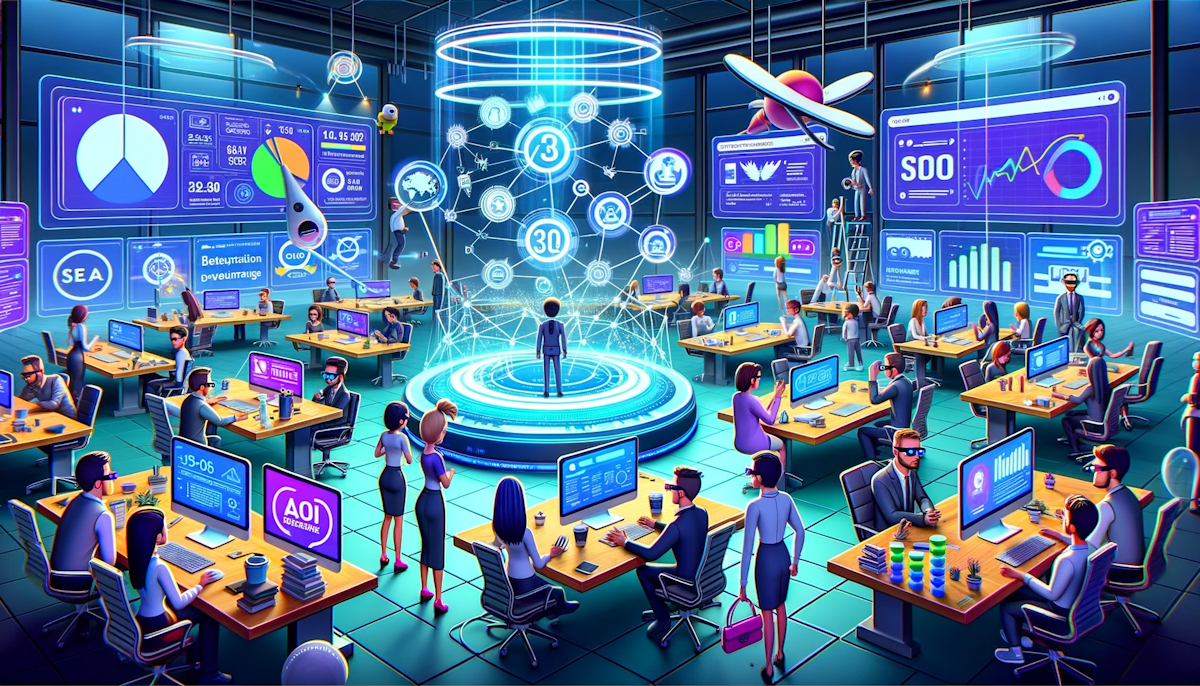
There is a relationship that exists between artificial intelligence and marketing strategies nowadays, especially in the area of digital marketing. Welcome to our comprehensive guide, AI in Action: However, in today’s world of content and search engine rankings, which determine visibility, AI has become an indispensable aid for marketers.
This post will discuss various ways in which AI-driven approaches are transforming digital marketing today.
AI-Powered Content Creation
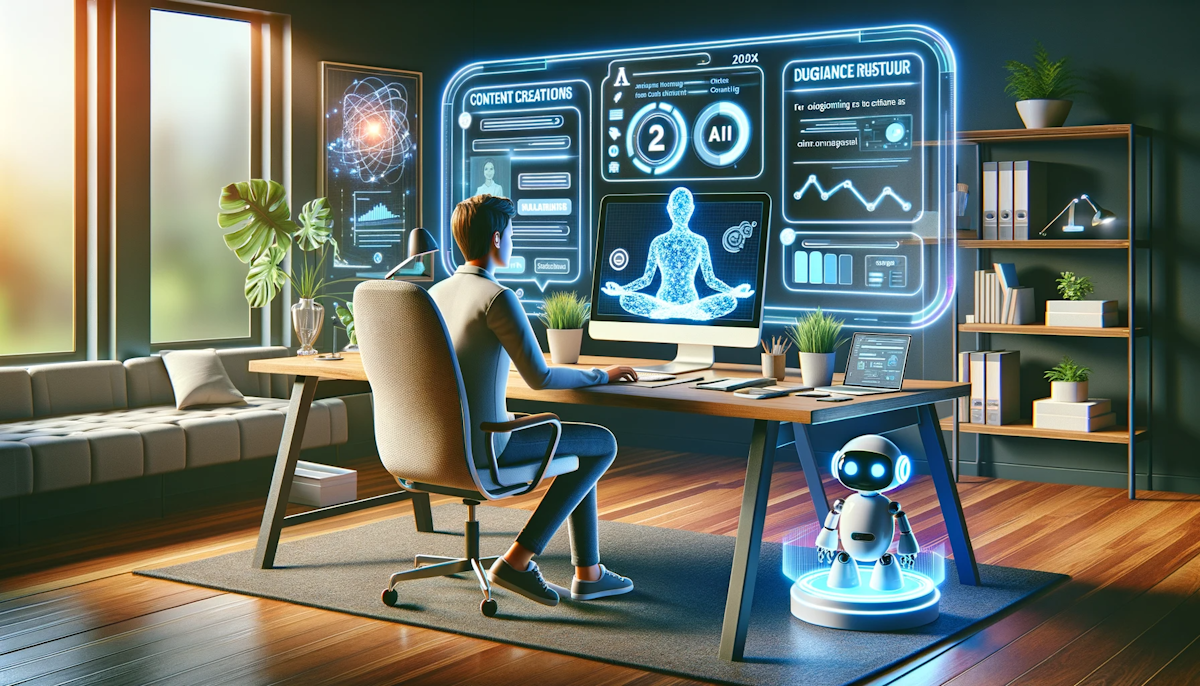
AI is now revolutionizing content creation and marketing. Here, we will examine how marketers harness AI for creating content, optimizing content, and customizing it in a way that engages the target audience while at the same time improving the content development process.
Leveraging AI for Content Generation
A good content marketing approach should always be built upon relevant content. Therefore, technology like the GPT-3 can power AI content generators that can produce multiple forms of content.
Technology has advanced so much that it can produce content such as blog posts, social media updates, product details, and sometimes full-length articles that are grammatically correct, relevant in context, and customized to specific requirements. Marketers can now quickly produce the volume of content that is needed to be competitive in today’s digital landscape.
Content Optimization and Personalization
Effective delivery of content depends on how relevant it is to the target audience. Optimization of content based on search engine results and user experience can be done by AI.
This makes it possible for content personalization, where the content is customized in accordance with the individual reader’s tastes and manner of reading. This takes personalization to an advanced level that goes beyond names. The content changes according to users’ interests and actions, leading to high levels of involvement.
Streamlining Content Production
Speed is a key aspect of modern-day digital marketing. Content creation is simplified through a number of steps, which include writing, translations, and speech synthesis, to name but a few.
AI-assisted tools can carry out a variety of tasks, such as researching topics, developing outlines, proofreading, and editing, which typically take a lot of person-hours. Content creation becomes cheaper and, at the same time, more efficient as marketers can redirect their efforts toward strategy and creativity.
SEO enhancement with AI
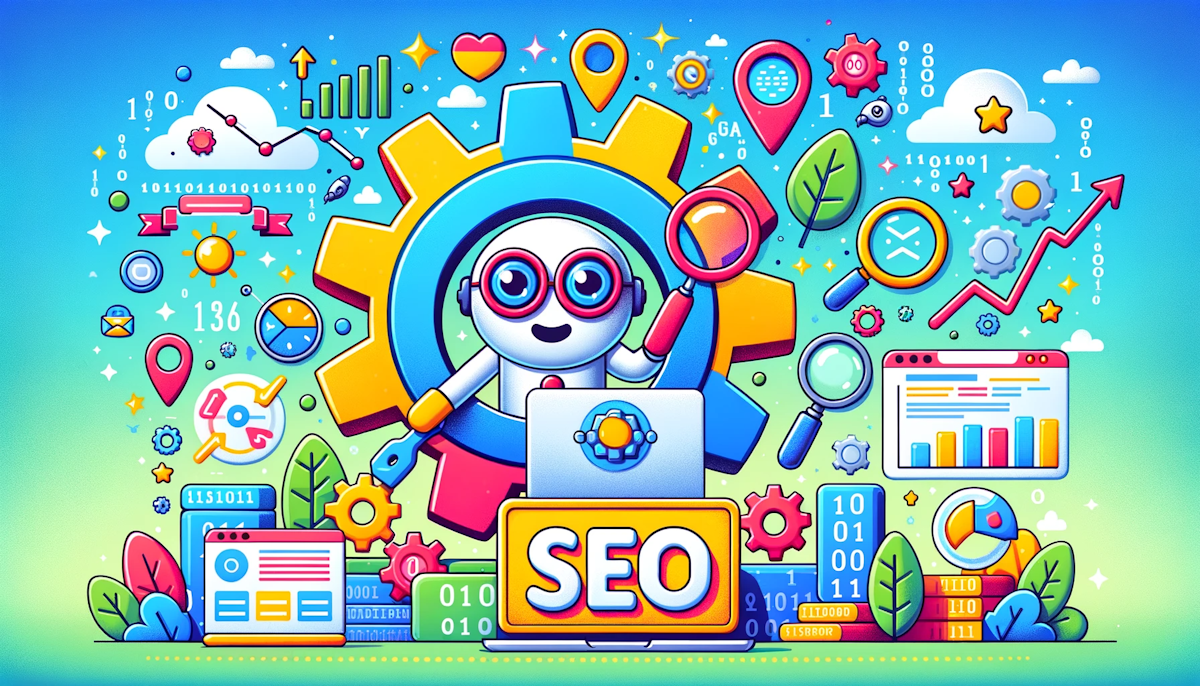
SEO is the backbone of digital marketing, and AI has brought forth contemporary SEO strategies. Here are many details on how marketers rely on AI to conduct keyword research, improve content optimization, and analyze the user’s intent to be at the top of the search engine results pages.
AI-Powered Keyword Research
Keywords serve as a compass in the vast sea called the internet, directing content producers and search engines. With regard to keyword research, AI radically transforms the game by providing advanced tools that dig into the intricacies of users’ search activities.
However, these tools do not just examine the prevalence of keywords; they also assess their relevance to certain niches and seasonal tendencies. Marketers can learn how their audiences’ language changes over time so that they optimize their content to be searchable by searchers, improving a site’s visibility.
Content Optimization for Search Engines
Web content can be automatically tweaked by using AI-driven content optimization tools to update content in line with current SEO requirements.
AI helps in meeting various requirements search engines put on content, such as ensuring sufficient keyword density, suitable structure for featured snippets, and ease of voice search compatibility. The result? Appealing content for both humans and search engine algorithms.
User Intent Analysis
The key to successful SEO lies in interpreting the underlying purpose that drives a user’s query. In this particular issue, AI has an edge over humans because it is able to assess huge amounts of information and pinpoint users’ intentions correctly.
Hence, marketers should ensure that they develop their marketing to fit the users’ intention of information, transaction, or navigation. Additionally, AI will assist in predicting customer behavior and preferences, which will enable marketers to forecast needs and offer customized and contextual content.
AI-assisted SEO does not mean ranking high in SERPs alone but a meaningful, more user-centric approach.
AI-Driven Analytics
Marketing is always guided by analytics, and with the help of AI, this compass is soaring to a new level. We’ll look at how marketers use data for better decision-making and predictive analytics to target specific customer groups.
Harnessing Data for Informed Decision-Making
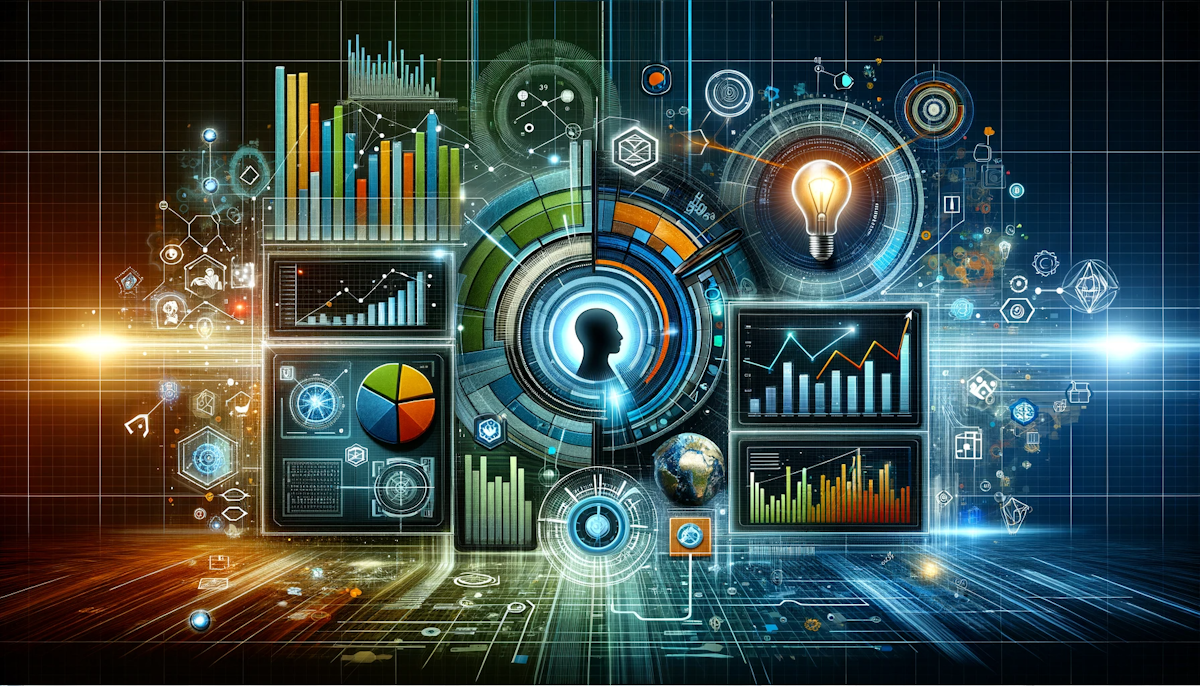
In an era of big data, AI has become a vital link between information and meaningful actions. Nowadays, marketers are able to use AI to sort large datasets, thus locating relevant patterns and tendencies. While AI can be used in descriptive analytics to describe and analyze past performance, it is also possible for AI to provide diagnostic analytics that identify faults and prescriptive analytics that suggest solutions.
The result? Evidence-based insights for informed decisions and not gut feelings. Marketers are also able to optimally run campaigns, use their resources effectively, and ensure that the performance of their campaigns is accurately captured.
Predictive Analytics for Targeted Marketing
With AI, every marketer’s dream—the crystal ball known as predictive analytics—becomes real. Predictive analytics, an AI-driven process, surpasses reasoning to show us what will happen. The predictive analysis takes raw historical information, runs it through machine learning algorithms, and arrives at likely behaviors for users, trends in the markets, or predicted outcomes.
These insights will enable marketers to fine-tune their strategies for more targeted and effective marketing. Predictive analytics using AI can help foretell and manage different issues, including customer churn, upselling areas, and advertising budgets, among others.
Chatbots and Customer Engagement
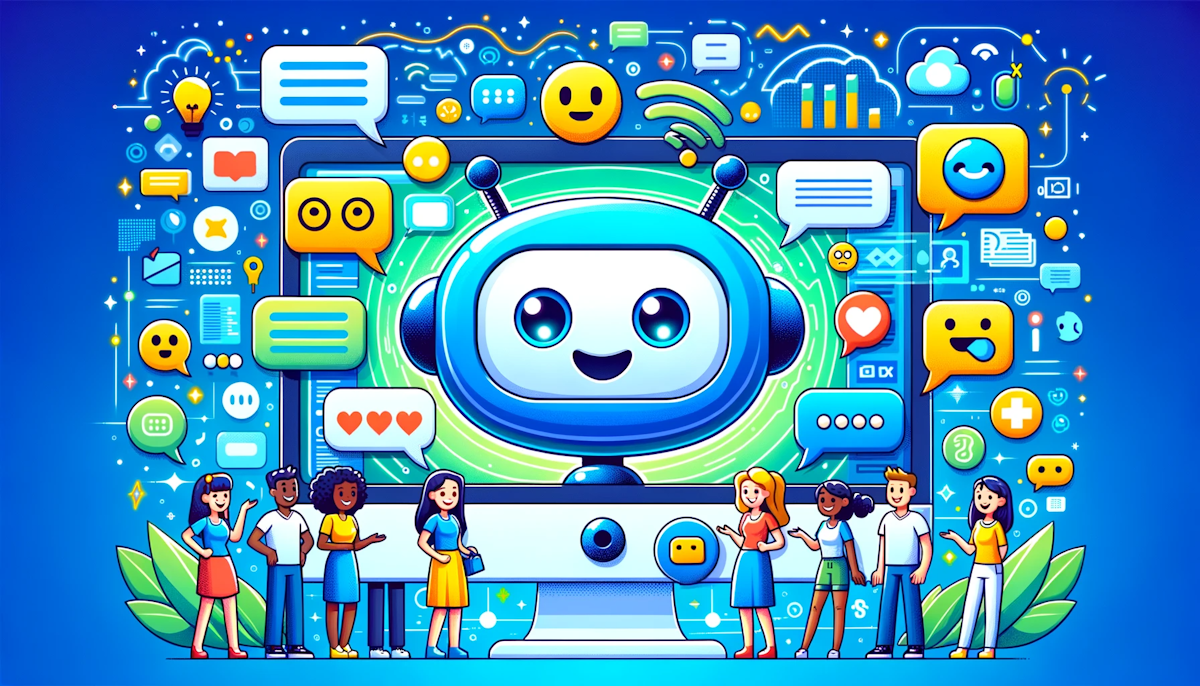
Chatbots powered by AI have transformed the sphere of customer engagement. The effectiveness of using artificial intelligence-driven chatbots in improving customer service, lead generation, and conversion will be discussed in this section.
AI-Powered Chatbots in Customer Support
Chatbots powered by AI are becoming critical components for quality customer support. The virtual assistants can be used round-the-clock by offering help to customers regarding their problems and questions.
Chatbots powered by NLP and machine learning algorithms have been able to mimic a human feel by engaging in conversation like a person would, with the aim of addressing simple issues or transferring them to human agents where necessary. This creates smooth customer support, which results in greater customer satisfaction and retention.
Chatbots Aid in Lead Generation and Conversion
While chatbots provide customer support, it must be noted that they are very significant in lead generation and conversion. Markets can communicate with website visitors instantly using intelligent chatbots, answering questions, providing information on products, and possibly leading to conversion.
Some chatbots are designed to pre-qualify leads, providing promising prospects to a human-based sales team. The efficiency of marketing and sales is greatly improved by chatbots, which streamline lead generation and conversion processes.
Personalized Customer Experiences
A great thing about AI-powered chatbots is that they can provide a super-customer experience and interactions. By doing so, chatbots are in a position to analyze user data and behavior so that they can customize their responses and recommendations for every given person.
Customers are impressed by this level of personalization as it improves engagement and boosts conversion levels. Chatbots create a feeling of understanding among the customers, whether they are recommending products based on previous purchases or delivering content that relates to their interests.
Chatbots, driven by AI, are not simply a way of replacing customer relations; instead, they are providing rich and productive interactions.
The Future of AI in Marketing
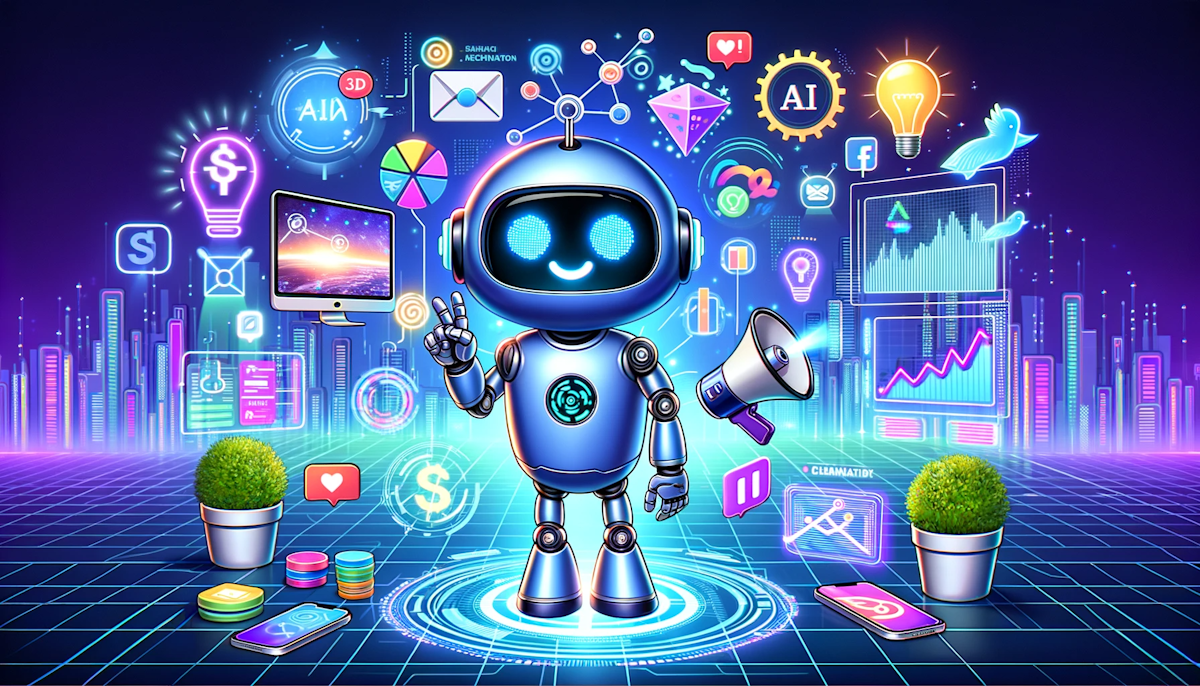
When looking at the future, AI in marketing brims with possibilities. We will discuss some new developments and innovations that have been changing our world of marketing and offer some forecasting outlooks.
Emerging Trends and Innovations
We are now in a dynamic world where AI contributes to continual change. New tendencies highlight interesting things like developing multi-modal content generation, which uses pictures, sounds, and even video to create more absorbing and attractive materials.
Virtual content creators powered by artificial intelligence are gaining momentum and giving humans touch to AI-generated content while engaging in new methods of capturing audiences’. AI is moving towards the analysis of the emotional aspects of users to help marketers develop more appealing content for their audience.
Expert Insights and Predictions
Several professionals also perceive AI’s increasing importance in managing campaigns and making decisions. The role of AI in helping marketers automate and improve their campaigns will continue to grow. These activities, in turn, will cut down on workloads for marketers as well as boost efficiency.
Also, the development of the human-AI partnership, in which humans will take a more supervisory role, giving direction to AI, will execute finer details. As marketers, they will have to adapt to this changing terrain, employing AI’s abilities to keep afloat amidst the dynamic internet marketing environment.
AI in marketing has an exciting future ahead, with breakthrough technology, better communication with customers, and more effective marketing strategies. This partnership between humans and AI is at the heart of it all, and tomorrow’s marketing is there for those who will take hold of this futuristic technology.
Conclusion
The evolution of AI’s role in marketing as we come to the end of this guideline cannot be ignored. This is not a trial-and-error situation, as we have mentioned some of the most effective SEO and content marketing tactics. Human creativity, in conjunction with AI’s driven precision, leads to better customized and focused advertising campaigns. AI will continue to innovate marketing into the future.

Daniel Errante
Lead Software Engineer, Typli.ai
Daniel is a software engineer, entrepreneur and AI enthusiast who has a passion for writing great software and coaching software development teams on how to build reliable, scalable and secure software. Over the past few years he has developed an interest in building artificial intelligence applications and is the head software engineer at Typli.ai.
Don't let complicated software hold you back. Step into effortless content creation with Typli and elevate your writing today. Experience AI content writing made simple.